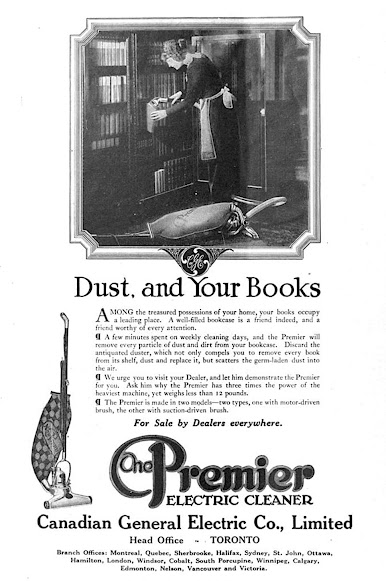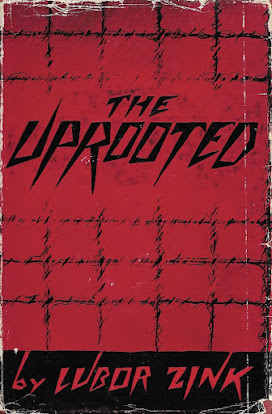 |
| Maclean's, 1 November 1920 |
09 December 2022
02 December 2022
Best Books of 1922: Amidst a Flood of Mediocrity
Published one hundred years ago today, the 1922 Globe round-up of the year's noteworthy books doesn't display much by way of enthusiasm. The three pages – previous years had five – begin with a reference to something once said by long-dead Englishman George Crabbe. It really sets the tone:
The trend may be away from fiction, but fiction makes for nearly half of the Globe's list. And I can't help but note that not one science title features.
The newspaper's greatest focus is on "GENERAL FICTION," by which it means fiction that is not Canadian. Babbit is recognized as the year's big title. I can't quibble because I still haven't read it. I have read The Beautiful and Damned, which doesn't feature.
 |
| My copies of the first Canadian editions |
The Return of Blue Pete - Luke Allan [Lacey Amy]Flowing Gold - Rex BeachChalk Talks - J.W. BengoughIndian Legends of Vancouver Island - Alfred CarmichaelGod's Green Country - Ethel M. ChapmanKing's Arrow - H.A. CodyCaste - W.A. FraserPagan Love - John Murray GibbonD'Arcy Conyers - Bertal HeeneyMortimer's Gold - Harold HornThe Timber Pirate - Charles Christopher JenkinsThe Bells of St Stephens - Marian KeithThe Dust Flower - Basil KingThe Twenty-first Burr - Victor LauristonOpenway - Archie P. McKinshieOver 'ere and Back Home - P. O'DTillicums of the Trail - George C.F. PringlePoisoned Paradise - Robert W. ServiceNeighbors - Robert SteadThe Prairie Child - Arthur StringerSalt Seas and Sailormen - Frederick William WallaceThe Shack Locker - Frederick William Wallace
 |
| My collection of the Globe's 1922 Canadian fiction titles. |
 |
| Four that didn't make the list. |
Really?
Most Canadian novels dating from this time have rural settings.
More, please?
The Globe is most complimentary in its opinion of Canadian verse, but not before taking a dig at the Mother Country: "In Britain, during the past year, deflation has not been confined to finance, and poetry scarcely rises above the horizon." But Canada, young Canada, imbued with "national sentiment stimulated by the war, receives refreshing satisfaction from the study of the poet's message."
Nine of the fourteen volumes of verse are Canadian:
Jean Blewett's Poems - Jean BlewettComplete Poems of Wilfred Campbell - Wilfred CampbellContrasts - Lawren HarrisComplete Poems of Archibald Lampman - Archibald LampmanFires of Driftwood - Isabel Ecclestone MackayThe Woodcarver's Wife and Later Poems - Marjorie L. PickthallChrist in the Strand and Other Poems - James A. RoyVerse and Reverse - Toronto Women's Press Club
Of the forty-seven, Over Prairie Trails by Frederick Philip Grove is in print today as a New Canadian Library title. New Canadian Library being no more, it's old stock now housed somewhere in a Penguin Random House warehouse.
What else is in print?
Nothing?
Oh, Canada.
Cyril's family is unaware that he and his cabinet-maker employee are making and selling false antique furniture. It is only when he dies and his salesman Bernie marries his widow Julie that the truth comes out through Cecil re-appearing as a parrot, puzzlingly given as a wedding gift. When a local Brighton heavy realises he's been conned the family band together to try and fix things.
01 December 2022
'December' by S. Frances Harrison
An old poem for the New Month by daughter of Toronto Susie Frances Harrison (née Riley; a/k/a Seranus). This version comes from her second collection, Pine, Rose and Fleur de Lis (Toronto: Hart & Co, 1891).
I long for a noble mood. I long to rise,Like those large rolling clouds of ashen pinkThat deepen into purple, over strifeAnd small mechanic doings. How superbThat landscape in the sky to which I walk,And gain at will a spacious colour-world,In which my finer self may feel no fear!The distance far between that goal and meSeems lightly bridged; breathless, I win that goal—The shores of purple and the seas of gold.Below, how flat the still small earth—a sphereThat only the leaden soul takes solace in!The long pine stretches, barred in sombre black,Cross at right-angles fields that are gray with snow—Not white, but gray, for all the colours is here,Colour—a new sacrament—melted gems,The hearts of all water-lilies, the tips of their wings—Young angels', plumed in topaz, garnet, rose—The dazzling diamond white, the white of pearl.How poor a place the little dark world appears,Seen from this gold-cloud region, basoned in fire!Only a step away, and nothing is seenOf the homes, huts, churches, palaces it bearsUpon its dry brown bosom. There remainsBut the masterful violet sea, that angrilyThis moment somewhere gnashes its yellow teethAgainst a lonely reef. What's most like GodIn the universe, if not this same strong sea,Encircling, clasping, bearing up the world,Blessing it with soft caresses, then, for faults,Chiding in God-like surges of wrath and storm?But the ocean of cloud is placid, and the shores,Rolled up in their amethyst bulk towards the stars,Fade noiselessly from pearl to purple dark.The shades fall even here. Here—not exemptFrom death and darkness even these shining airs—The night comes swifter on than when on earth.The fringes of faintest azure, where the barsOf paler cloud are fading into gray,Are dulled and blotted out. Opaque has grownThe molten in one moment; fleecy paleAnd ghastly all the purple lonely then,And awed to horror of those glacial peaks,I bridge the vaporous barrier once again,And tread the despised earth. Then how too dearDoth the rude, common light of earth appear—That of a street lamp, burning far, but clear!The sign of human life, of human love,Of habitation sweet, of common joysAnd common plans, though precious, yet not prized,Till in a moment's fancy I had lost them.
30 November 2022
28 November 2022
The Dustiest Bookcase: Z is for Zink (Again)
Lubor Zink
Toronto: Longmans Canada, 1962
343 pages
Hilarious.
 |
| Trudeauacracy Lubor J Zink [Toronto]: [Toronto Sun], 1972 |














